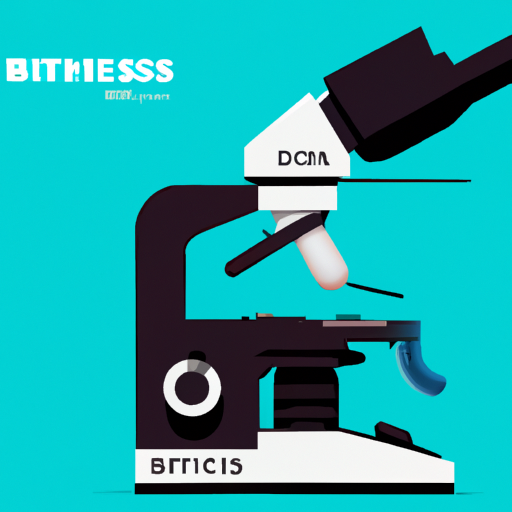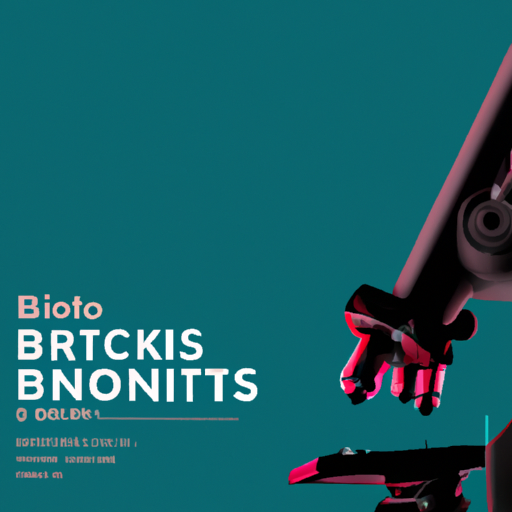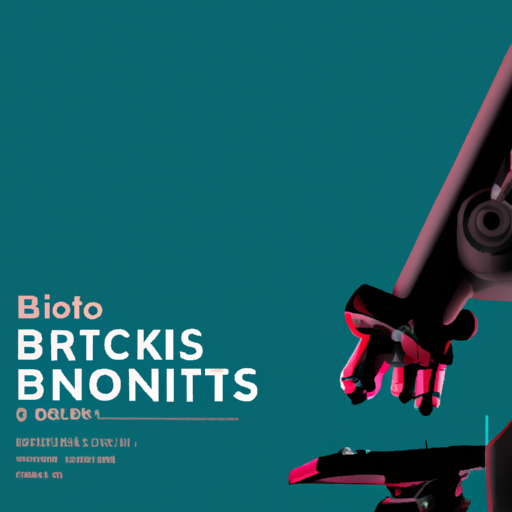Biotech Industry Trends
You, as a keen observer of the biotech industry, always strive to stay ahead of the game. In this article, we explore the latest groundbreaking developments and emerging trends that are shaping the biotech industry. From gene editing advancements to the rise of personalized medicine, this captivating analysis will provide you with valuable insights into the transformative landscape of the biotech industry. So, buckle up and get ready to be amazed by the cutting-edge innovations driving this fascinating field forward.

Table of Contents
Investments in Biotechnology
Increased funding from venture capitalists
Investments in the biotechnology sector have been steadily increasing, with venture capitalists showing a growing interest in funding biotech startups. These investors recognize the vast potential for innovation and substantial returns in the biotech industry. This influx of funding has allowed companies to accelerate their research and development efforts, leading to breakthrough discoveries and advancements in various fields of biotechnology.
Rise in initial public offerings (IPOs)
The biotech industry has been witnessing a surge in initial public offerings (IPOs) as companies look to access the public capital markets to raise funds for their research and commercialization activities. The robust investor interest in biotech IPOs can be attributed to the strong growth potential and the promise of significant returns that biotech innovations offer. These IPOs provide biotech companies with the necessary financial resources to expand their operations and bring their products to market, driving further advancements in biotechnology.
Growing interest in biotech from large pharmaceutical companies
Large pharmaceutical companies have also been actively investing in biotechnology, recognizing the immense potential for innovation and growth that the industry offers. These companies are seeking to expand their portfolios by acquiring or partnering with biotech firms that have innovative technologies and promising drug candidates. The synergistic collaboration between large pharmaceutical companies and biotech startups not only provides the necessary resources for continued research and development but also facilitates the translation of groundbreaking discoveries into commercially viable products.
Advancements in Gene Editing
CRISPR-Cas9 revolutionizing gene editing
One of the most significant advancements in biotechnology in recent years is the discovery and development of CRISPR-Cas9 technology, which has revolutionized the field of gene editing. CRISPR-Cas9 allows scientists to precisely modify, delete, or insert specific sequences of DNA, opening up a world of possibilities for genetic research and therapeutic applications. This breakthrough technology has the potential to provide innovative solutions for treating genetic diseases and improving agricultural practices.
Application of gene editing in agriculture
Gene editing techniques, such as CRISPR-Cas9, offer immense potential for improving crop traits and agricultural practices. By precisely modifying the genetic makeup of crops, scientists can enhance resistance to pests and diseases, increase crop yield, and improve nutritional content. This application of gene editing in agriculture not only addresses global food security challenges but also has the potential to mitigate the environmental impact of conventional farming methods.
Potential for curing genetic diseases
Gene editing technologies hold the promise of revolutionizing the treatment of genetic diseases. By correcting disease-causing genetic mutations, scientists can potentially cure debilitating conditions that were previously deemed incurable. This breakthrough has the potential to transform healthcare by providing personalized treatments tailored to an individual’s unique genetic makeup, bringing hope to millions of patients and their families.
Personalized Medicine
Utilization of genetic information in treatment decisions
The emergence of personalized medicine has been made possible by advancements in biotechnology, particularly in the field of genomics. By analyzing an individual’s genetic information, healthcare professionals can gain valuable insights into an individual’s predisposition to certain diseases and their response to specific treatments. This information can be used to make more informed treatment decisions, tailoring therapies to each patient’s unique genetic profile for improved outcomes.
Development of companion diagnostics
Companion diagnostics are a fundamental component of personalized medicine. These tests help identify patients who are most likely to benefit from a particular treatment or therapy, ensuring that medications are targeted to patients who are most likely to respond positively. By accurately predicting treatment outcomes, companion diagnostics not only optimize patient care but also help reduce unnecessary healthcare costs.
Tailoring drug therapies based on individual patient characteristics
Another key aspect of personalized medicine is the customization of drug therapies based on individual patient characteristics. Advancements in biotechnology have enabled the development of targeted therapies that specifically address the underlying genetic abnormalities driving diseases. By tailoring drug therapies to a patient’s unique genetic makeup, personalized medicine aims to maximize treatment efficacy and minimize adverse side effects.

Emergence of Synthetic Biology
Designing and constructing new biological parts, devices, and systems
Synthetic biology involves the design and construction of new biological parts, devices, and systems that do not exist naturally. This emerging field of biotechnology combines principles from various disciplines, including biology, engineering, and computer science, to create novel biological entities with unique functionalities. Synthetic biology offers exciting possibilities, such as the creation of microorganisms capable of producing biofuels or the development of artificial organs for transplantation.
Engineering microbes for sustainable production of fuels and chemicals
One of the most promising applications of synthetic biology is the engineering of microbes for sustainable production of fuels and chemicals. By modifying the genetic makeup of microorganisms, scientists can enhance their ability to convert renewable resources into valuable products, such as biofuels, bioplastics, and pharmaceutical intermediates. This approach offers a sustainable alternative to traditional manufacturing processes that rely on fossil fuels and reduces the environmental impact associated with their production.
Advancements in DNA synthesis and assembly techniques
Recent advancements in DNA synthesis and assembly techniques have significantly contributed to the progress of synthetic biology. These techniques enable scientists to design and create DNA sequences that can be integrated into living organisms to modify or enhance their functionalities. The ability to synthesize and assemble DNA at a high throughput and with increasing accuracy has accelerated research in synthetic biology, propelling the field forward and unlocking new possibilities in biotechnology.
Expansion of Biopharmaceuticals
Rise in biologic drug development
Biopharmaceuticals, also known as biologics, are a class of drugs derived from living organisms or produced through biotechnology processes. These drugs have gained considerable traction in the pharmaceutical industry due to their high specificity and effectiveness in targeting various diseases, including cancers, autoimmune disorders, and rare genetic conditions. As a result, there has been a significant rise in the development of biologic drugs, with more companies investing in research and clinical trials to bring these innovative therapies to market.
Increasing number of biosimilars
Biosimilars are biologic products that are highly similar to an already approved reference biologic drug. They offer a more cost-effective alternative to their reference products, providing increased accessibility to lifesaving therapies. The growing demand for biosimilars has prompted biotech companies to invest in the development and manufacturing of these products. As more biosimilars enter the market, patients and healthcare systems can benefit from increased competition, potentially leading to lower drug costs and improved patient access to essential treatments.
Adoption of monoclonal antibodies in cancer treatment
Monoclonal antibodies, a type of biologic therapy, have revolutionized cancer treatment. These engineered antibodies specifically target cancer cells, harnessing the immune system’s power to eradicate tumors. With numerous monoclonal antibodies approved for various cancer indications, there has been a significant shift towards personalized and targeted therapies. Biotech companies continue to invest in the development of novel monoclonal antibodies, aiming to improve treatment outcomes and expand the range of cancers that can be effectively treated.
Precision Agriculture
Integration of biotech in agricultural practices
The integration of biotechnology in agricultural practices, also known as precision agriculture, has transformed the way crops are grown. Biotech innovations, such as genetically modified organisms (GMOs), have allowed farmers to cultivate crops that are more resistant to pests, diseases, and environmental stressors. Additionally, biotech tools enable precise monitoring of soil conditions, weather patterns, and plant health, optimizing resource allocation and reducing inputs such as water and fertilizers.
Use of genetically modified crops for increased yield
Genetically modified crops have played a crucial role in addressing global food security challenges by increasing crop yield and improving nutritional content. Biotechnology tools allow scientists to introduce desirable traits into crops, such as drought tolerance, disease resistance, and increased nutrient content. By leveraging these advancements, farmers can achieve higher crop yields, ensuring an adequate and sustainable food supply to meet the demands of a growing population.
Application of biotech in crop protection and pest control
Biotechnology has also made significant contributions to crop protection and pest control. Through genetic modification, scientists have developed crops that are resistant to pests and diseases, reducing the need for chemical pesticides. This approach not only minimizes the environmental impact associated with traditional pest control methods but also promotes sustainable agricultural practices. Furthermore, biotech tools enable the development of targeted pest control strategies, minimizing off-target effects and protecting beneficial insects.
Bioinformatics and Data Analytics
Utilization of big data in biotech research
The field of biotechnology is generating vast amounts of data, ranging from genomic sequences to clinical trial results. To leverage this data effectively, bioinformatics and data analytics have become indispensable tools for biotech researchers. By employing advanced computational techniques, scientists can analyze large datasets to identify patterns, make predictions, and extract meaningful insights. These insights have the potential to accelerate drug discovery, optimize treatment protocols, and improve patient outcomes.
Development of algorithms for analyzing genomic data
The analysis of genomic data is a critical component of biotech research, and the development of algorithms capable of efficiently analyzing vast genomic datasets has become a significant focus of bioinformatics. These algorithms can identify genetic variations, interpret their functional significance, and correlate them with disease susceptibility or treatment response. By unraveling the complexities of the human genome, researchers can uncover new therapeutic targets and develop innovative interventions, ultimately advancing precision medicine.
Improving drug discovery process through data mining
Data mining techniques are enabling researchers to explore and interrogate vast databases of biomedical information to identify novel drug targets and repurpose existing drugs for new indications. By extracting valuable insights from diverse data sources, such as electronic health records and scientific literature, data mining facilitates the discovery of new connections and relationships that can guide drug development efforts. This approach expedites the drug discovery process, potentially reducing development costs and improving the speed at which new therapies are brought to market.
Biotech in Healthcare
Development of innovative therapies
Biotech has revolutionized healthcare by enabling the development of innovative therapies that were once unimaginable. From gene therapies that can cure genetic diseases to immunotherapies that harness the immune system to fight cancer, biotech innovations have significantly expanded the treatment options available to patients. These advancements hold great promise in transforming the healthcare landscape, providing hope and improved outcomes for individuals affected by previously incurable conditions.
Enhancement of diagnostic techniques
Biotech has also played a crucial role in enhancing diagnostic techniques, improving the accuracy and efficiency of disease detection. Molecular diagnostic tests, enabled by biotechnology, employ genetic and protein-based markers to identify diseases at an early stage when treatment is most effective. Additionally, biotech innovations have facilitated the development of non-invasive diagnostic tools, such as liquid biopsies, which can detect and monitor diseases through the analysis of biomarkers in body fluids. These advancements have revolutionized diagnostic practices, leading to earlier detection, better prognoses, and improved patient care.
Improving patient outcomes with biotech solutions
Biotech solutions are transforming patient outcomes by tailoring treatments to individual patient characteristics and optimizing therapeutic efficacy. Personalized medicine, facilitated by genomics and precision diagnostics, allows healthcare providers to customize treatment plans based on a patient’s unique genetic makeup and specific disease characteristics. This targeted approach minimizes adverse reactions and maximizes treatment effectiveness, improving patient outcomes and quality of life. Biotech solutions are also enabling more efficient and patient-friendly drug delivery systems, such as implantable devices and long-acting formulations, ensuring optimal medication adherence and treatment success.
Regulatory Challenges in Biotech
Ensuring safety and efficacy of biotech products
The rapid advancements in biotechnology have presented regulatory challenges in ensuring the safety and efficacy of biotech products. Regulators must carefully evaluate the risks and benefits associated with new biotech innovations, striking a balance between promoting innovation and protecting public health. Robust regulatory frameworks are essential to safeguard patient safety, monitor product quality, and foster public trust in the biotech industry. Close collaboration between regulatory agencies, industry stakeholders, and research institutions is vital to address these challenges effectively.
Navigating complex regulations for clinical trials
Clinical trials are a critical component of drug development, providing evidence of safety and efficacy required for regulatory approval. Biotech companies face the challenge of navigating complex regulations governing clinical trials, ensuring compliance with stringent requirements while maximizing the efficiency and speed of the development process. Streamlining regulatory processes, harmonizing international standards, and promoting innovative trial designs are key strategies to accelerate the development of breakthrough therapies while maintaining patient safety.
Balancing ethical considerations associated with biotechnology
The advancements in biotechnology raise complex ethical considerations that must be carefully addressed. Issues such as gene editing and synthetic biology raise questions regarding the potential for misuse, unintended consequences, and the boundaries of ethical and responsible research. Stakeholders in the biotech industry need to engage in open and transparent discussions to formulate ethical guidelines and regulatory frameworks that address societal concerns, protect individual rights, and promote the responsible and sustainable development of biotechnology.
Collaboration between Biotech and Tech Industries
Integration of biotech and artificial intelligence
The integration of biotechnology with artificial intelligence (AI) is a rapidly evolving trend that holds great promise for the future of healthcare. AI algorithms can analyze vast amounts of genomic, clinical, and real-world data to identify patterns, predict treatment responses, and optimize patient care. By leveraging AI-powered technologies, biotech companies can accelerate drug discovery, enable personalized medicine, and enhance diagnostic accuracy. The collaboration between biotech and tech industries has the potential to revolutionize healthcare, bringing about more efficient and effective solutions for patients.
Utilization of blockchain technology in genomics
Blockchain technology has the potential to transform the field of genomics by enabling secure, decentralized storage and sharing of genomic data. The sensitive nature of genomic information necessitates robust privacy and security measures, and blockchain offers a promising solution. By leveraging blockchain technology, individuals can securely store and control access to their genomic data, allowing for more comprehensive genomic analyses while ensuring privacy and data ownership. This collaborative approach between biotech and tech industries can accelerate research, promote data sharing, and drive advancements in precision medicine.
Joint projects for developing innovative healthcare solutions
Collaboration between the biotech and tech industries has given rise to joint projects aimed at developing innovative healthcare solutions. The diverse expertise and resources of both sectors enable the creation of cutting-edge technologies and platforms that address unmet medical needs. These collaborative projects range from the development of digital therapeutics and wearable devices to the application of machine learning algorithms in healthcare. By pooling their strengths and knowledge, the biotech and tech industries can drive advancements in healthcare, improving patient outcomes and transforming the way medical treatments are delivered.






